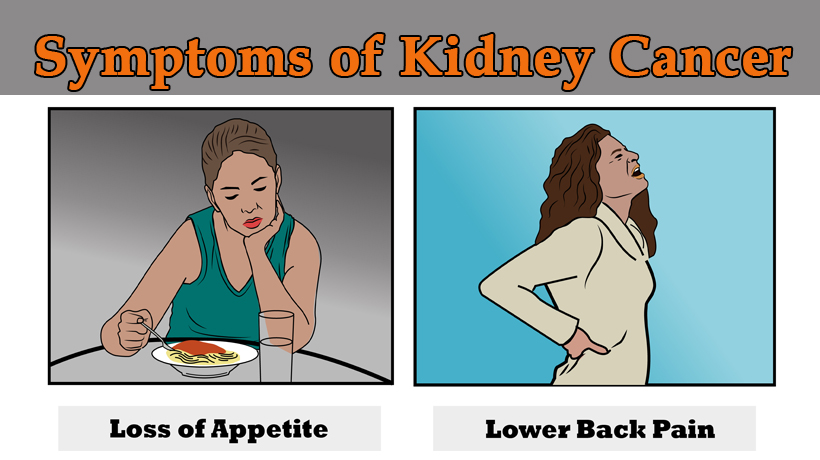Being one of the 10 most common cancers in men and women, about 63,000 new cases of kidney cancer occurred in 2018, based on research collected by The American Cancer Society.
It is usually diagnosed in older individuals, the average age being around 64 years old, and it’s uncommon to diagnose patients with kidney cancer under the age of 45. The reasoning behind the potentially delayed diagnosis is frightening. The American Cancer Society reports that due to the location of the kidneys, small kidney tumors cannot be seen or felt during a physical exam. These cancers can grow large, despite no pain in the region. The following symptoms are most common if diagnosed with kidney cancer.
Blood in urine
Spotting blood in the urine can be caused by an infection or kidney stones, according to UK Cancer Research. However, it is possible that there is blood present in the urine that is not visible to the naked eye. This can usually be discovered by a urine test. Blood in the urine may not be consistent, but this does not mean that there is no underlying health concern.
Lower back/side pain
The kidneys rest near the back muscles and right below the ribcage, as stated by Affiliated Urologists Practice. If experiencing back pain along with a fever and chills, this is a common symptom of kidney cancer. Affiliated Urologists Practice mentions that lower back pain can be the result of an infection in the kidneys or sudden kidney malfunction.
Frequent fatigue
Persistent fatigue accompanying cancer can impair the many aspects of a patient’s life. Patients report that treatment-related fatigue has a greater impact than other symptoms, explained by M.D, James Larkin. He reports that kidney cancer is limited to “cytokine-based therapies, which are associated with modest response rates and significant toxicity, including high rates of treatment-related fatigue.”
Repetitive fevers
Some tumors may produce a fever due to the toxicity level in the kidney, affirmed by UK Cancer Research. Fevers may present themselves in cycles, and physicians usually cannot pinpoint specific factors that periodically cause them.
Absence of appetite
Loss of appetite results from cancer or its treatments. Medications can alter the taste of food, which is uncomfortable and difficult to deal with, as the patient is attempting to nourish their fragile bodies.
Anemia, weight loss not due to dieting, and frequent urinary tract infections are other symptoms that can arise if a patient is diagnosed with kidney cancer. Please keep in mind that a physician is responsible for determining if you are at possible risk for kidney cancer. Consult with your doctor today if one or more symptoms interfere with your lifestyle.
Sources:
https://www.cancer.org/cancer/kidney-cancer/about/key-statistics.html
https://www.cdc.gov/cancer/kidney/index.htm
https://www.cancerresearchuk.org/about-cancer/kidney-cancer/symptoms
https://www.affiliatedurologists.com/blog/when-back-pain-means-kidney-problems
https://www.ncbi.nlm.nih.gov/pmc/articles/PMC3227914/
http://www.cancer.ca/en/cancer-information/diagnosis-and-treatment/managing-side-effects/loss-of-appetite/?region=on



